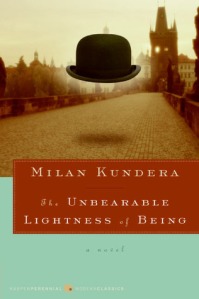 The downside of starting my postgraduate degree next week is that I will have a lot less time to read fiction and also a lot less time for blogging than I’ve had over the summer. The upside is that I now have access to different libraries and a 10% student discount at my favourite bookshop in the world, Foyles, so when I do have time to read for pleasure, I will be pretty spoilt for choice.
The downside of starting my postgraduate degree next week is that I will have a lot less time to read fiction and also a lot less time for blogging than I’ve had over the summer. The upside is that I now have access to different libraries and a 10% student discount at my favourite bookshop in the world, Foyles, so when I do have time to read for pleasure, I will be pretty spoilt for choice.
Last week, I visited the main university library for the first time and got hopelessly lost. Due to the absence of signs and being completely unfamiliar with the Library of Congress classification system, it took me nearly an hour to even find the sections relevant to my course. During my search, I happened to stumble across the Czech literature section and picked up a copy of ‘The Unbearable Lightness of Being’ by Milan Kundera as it was on my TBR list and isn’t available at my local library. I figured that even if I never found the books I had actually gone to look for, it wouldn’t have been a totally wasted trip.
‘The Unbearable Lightness of Being’ doesn’t really have a plot as such. I can’t really describe what happens in it other than that it is a meandering collection of philosophical observations set during the Prague Spring in 1968 and its aftermath. It’s actually more appealing and less dry than it might sound. There are four main characters: brain surgeon Tomas, his wife Tereza, his lover Sabina and her other lover, Franz. Oh, and a dog called Karenin. As expected with a densely written book rooted in philosophical ideas, I don’t think I understood a lot of what Kundera was trying to convey but I would be prepared to re-read it sometime in the future in the hope of uncovering a few more of the complex layers in the story.
I’m generally not a fan of post-modern literature and I did wonder what I was letting myself in for when I read the first sentence:
“The idea of eternal return is a mysterious one, and Nietzsche has often perplexed other philosophers with it: to think that everything recurs as we once experienced it, and that the recurrence itself recurs ad infinitum!”.
But although the book seemed almost impenetrable at the beginning, it isn’t totally incomprehensible, in spite of the non-linear plot and thinly sketched characters. Admittedly, ‘The Unbearable Lightness of Being’ is quite pretentious and I can see that it isn’t a book for everyone. But I think it is a readable sort of pretentiousness in that it is at least quite uplifting in some of the more comic parts. You will either love this book or hate it. You will also never look at a bowler hat in the same way again.





Sure, Kundera can be a little philosophical but there are true gems in his writing. Like extending the concept of logorrhea to modern publishing. (And what does that say about blogs I wonder.) I think he’s worth the effort.
As for bowler hats, Burgess/Kubrick still hold the title in that weight class. I wonder if Kundera was tipping his hat to those two.
LikeLike
I thought the bowler hat was a nod to Magritte…surrealism and all that?
LikeLike
This is a book that is loved in France and I remember reading it in French and finding it a bit too pretentious as well. I also agree it’s not for everyone. However the writing is rich in imagery that you can’t help feeling. I agree with Tim above concerning the bowler hats. Good luck on the start of your postgraduate degree!!! Try to read when you can every now and then to keep you creative.
LikeLike
I read The Unbearable Lightness of Being last year. I made it a point to write down all of the quotes and philosophical passages I wanted to think about later. It was a good way to continue reflecting on things. I’m sure, though, that plenty of points Kundera makes went WAY over my head.
Enjoy the start of your postgraduate degree! Good luck!
LikeLike
Milan Kundera is my absolute favorite author. I stumbled on him for a project in my Hybrid Lit class while getting my undergrad degree and I fell in (literary) love. I don’t necessarily think his style of writing is pretentious but more “real-life cerebral”, for lack of a better description. He can take a seemingly insignificant gesture, the way a woman flicks her wrist when she’s speaking to a man, for example, and turn that simple act into a 300 page novel. If you kinda-sorta liked The Unbearable Lightness of Being, I recommend you also read Immortality 🙂
LikeLike
As you say – it’s a bit of a love it or hate it book. Personally I love it. Not as much as I love The Book of Laughter and Forgetting, but still one of my favourites.
LikeLike
This book is one of the few I remember reading in my early twenties because my reaction was so violent. I felt absolutely light-headed like my mind had been stuffed with fairy floss and yes it was unbearable. Guess I’m on the hate side.
LikeLike
Brilliant book! Not sure about th idea of the characters being thinly-sketched, they are complex, but I can definitely see what you mean about their range. Again – can’t hope to say I understood it all, but I enjoyed it! I’d be interested to know if anyone who saw the film thought the issues in the book are as powerful on film?
LikeLike
I concur! “The Unbearable Lightness of Being” is a dark spot in my high school reading curriculum. It was unbearable…. at length. Maybe it is one of those books that deserve a new reading now that I am older, but it definitely isn’t at the top of my reading list. However, congrats – you perservered!
LikeLike
As an Arts student in the early 90s, this was a “must see” film…altho to be honest I could never really get into the book…
LikeLike
I would definitely agree with ‘quite pretentious’. I read this novel for two of my undergrad English Lit subjects and just couldn’t understand why it was on the course. After reading it the second time (still detesting it), I wondered if more would be gained by reading it in the language written – its translation into English just irks with the feeling of cumbersome philosophical musings – sheer pretentiousness!
P.S. don’t give up reading and blogging during your postgraduate studies… Reading stuff outside of your own course will keep you sane. And with the following you have from blogging – and blogging about books – may certainly lead you on the path toward an exciting career/future ahead!
LikeLike
Pingback: The Sealed Letter by Emma Donoghue | A Little Blog of Books and Other Stuff
Pingback: The Best of 2012 Survey | A Little Blog of Books and Other Stuff
I read this book in a Russian Literature/Art class in College and really liked it. I do think, however, if I hadn’t been in that class I would have missed a number of the nuances and references to great Russian novels, which would have greatly diminished my understanding of the book. (Not that those who didn’t read it in a class had a diminished understanding, I’m solely talking of my own experience with the book). I didn’t find it pretentious like some of the other readers who commented here did, but I can certainly understand why they would say so. I think, as a genre, Russian/Eastern European Literature can be difficult to dive into, a direct correlation to the social and political history of the region (I think). Literature and art stem from certain veins running through culture, be they mainstream or sub-level. I find that this is very much the case in Russian/Eastern literature, which I will admit, I have a love for. Kundera’s novel, while certainly not for everyone’s pallet, offers the reader a deep and intricate understanding of relationships, politics and culture for the area/time it was written.
LikeLike
Pingback: Books I Thought I Would Struggle With But Didn’t | A Little Blog of Books and Other Stuff